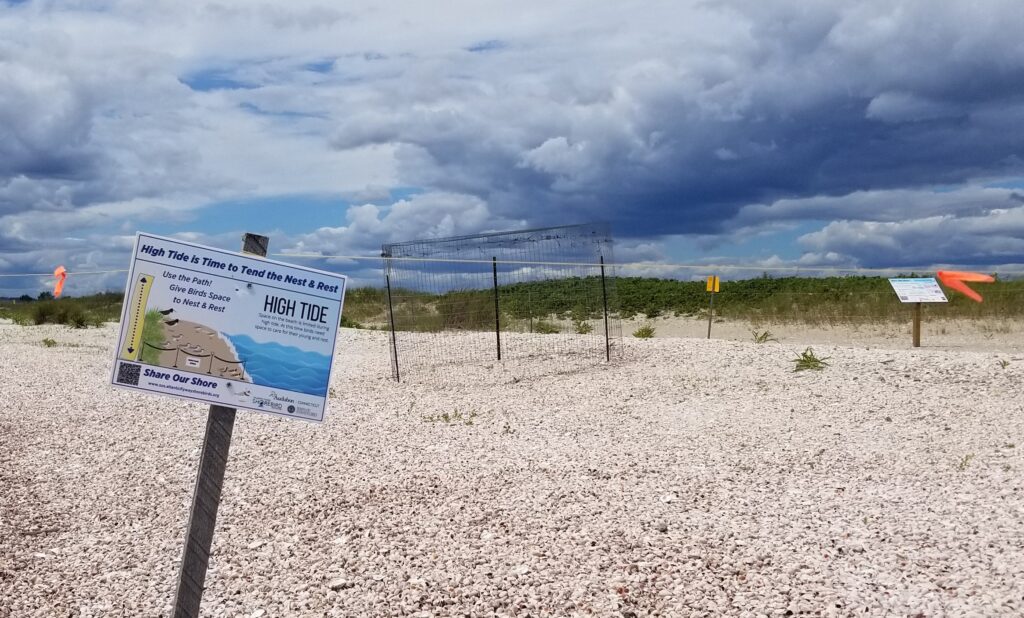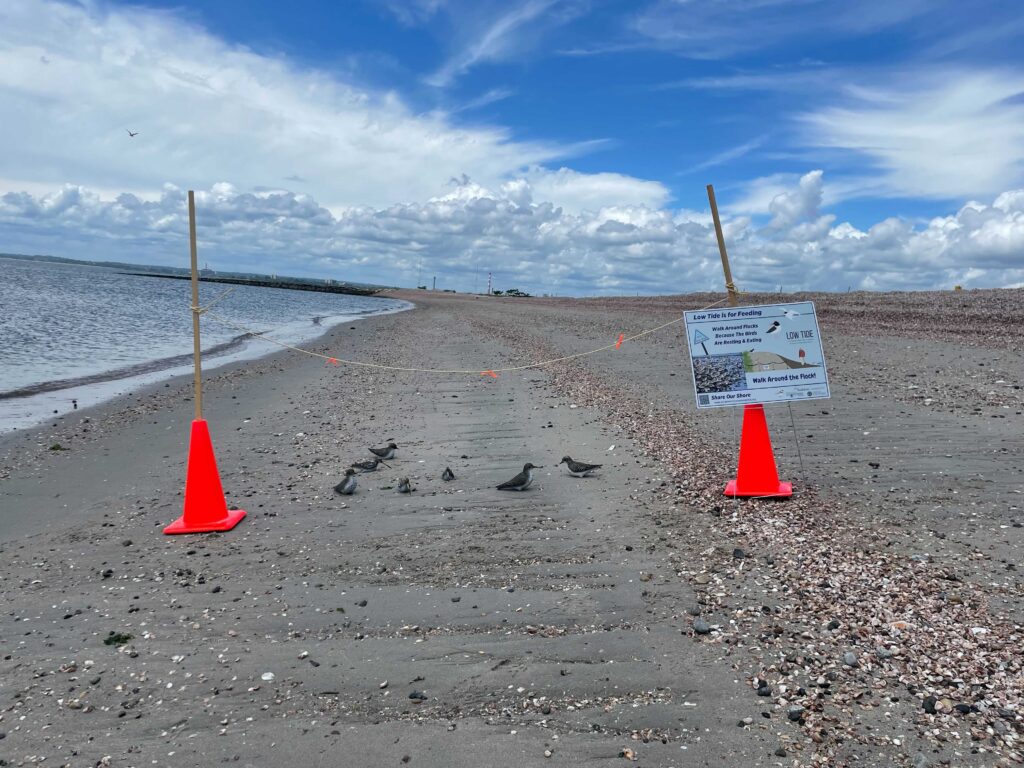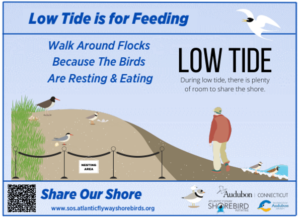Prompt
Prompts are short and brief auditory or visual reminders that help people recognize situations that warrant behavior change. Prompts can offer agencies and organizations the opportunity to implement targeted messaging with limited resources and funding.

Guidelines for Using Prompt as a Strategy:
- Ensure the prompt is noticeable to the target audience.
- Make sure the prompt is self-explanatory through the use of graphics and/or simple messages that explain what the person should be doing.
- Place prompts as close in time and space to the target behavior and where the behavior change is warranted.
- Use prompts to encourage people to engage in positive behaviors, like choosing to leash a dog near beach nesting birds.
- Combine prompts with other behavior change strategies, like communication or norms.
Why is Prompt a Good Strategy to Use at My Site?
Failure to engage in shorebird-friendly behaviors is not necessarily because people lack motivation. Sometimes people are not sure what birds are considered shorebirds, where shorebirds are found on the beach landscape, or they simply forget what to do. Prompts can help remove knowledge gaps and remind people to do a behavior in the time and place where it matters most.
This is a great strategy to use because it is impactful, specific, and can be implemented with limited funding and capacity.
People typically do not have harmful intentions when disturbing shorebirds. Oftentimes, they are just unaware of the impacts or forget to change their behavior.
Prompt in Action

Low Tide is for Feeding: Walk Around the Flock
In the context of shorebird conservation, you can also mimic situations where behavior change is warranted. Because we work with vulnerable species, our partners in Connecticut mimicked flocks by using decoy birds and placing their signs (see below) next to the flock to remind people to walk around without disrupting real flocks of birds.
This approach allows people to recognize the situation, understand why the behavior is important, and take that knowledge with them when they encounter a real scenario in the future.
